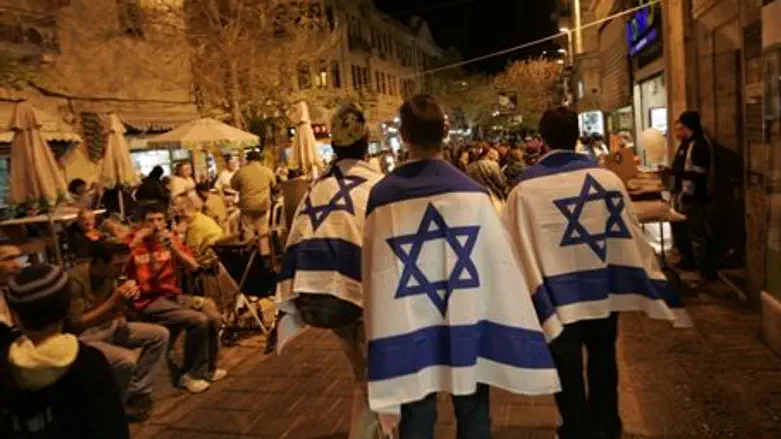
Most Israeli teenagers do not know what the Oslo Accords are, a MarketWatch poll conducted for the Zionist Council of Israel has found.
The poll was conducted to mark the National Youth Zionist Congress that was held this week. 300 Israeli Jewish teens between the ages of 15 to 18 responded to a number of questions about Israel and Zionism.
The Oslo Accords were the interim agreements reached between Israel and the Palestinian Authority in the 1990s and were meant to lead to a comprehensive, final-status peace treaty.
The poll found that 53.5 percent of the teenagers didn’t know that the Oslo Accords were, among them some 70.8% of hareidi respondents and 48.2% of secular respondents.
6.7% of the respondents thought the Oslo Accords were a peace treaty between Israel and Egypt, and 2.8% thought they were a peace treaty between Israel and Jordan.
Some 28.7% of respondents did not know the significance of the date November 29, 1947, the passage of the UN partition plan. An overwhelming majority (93.6%) had never heard of the Karine A, a PA freighter that was intercepted in the Red Sea in 2002 by the Israel Navy with some 50 tons of weaponry on board.
According to the poll, 82.9% of respondents knew the words of the national anthem, Hatikva, perfectly. Some 9.9% knew large parts of the anthem, while 1.1% said they knew none of the anthem's words.
A huge majority (82.9%) defined themselves as Zionist, while 15.8% defined themselves as non-Zionist.
Nearly all (99.5%) of respondents had visited Jerusalem at least once.
The poll found that 84.6% of respondents would choose to enlist in the Israel Defense Forces or another form of national service even if it were not mandatory.
Some 84.2% of respondents said they would be living in Israel in 15 years, while 11.7% said they would be living abroad.
“The poll's findings prove that Zionism is alive and kicking and perhaps more relevant today than ever before,” said Yaakov Hagoel, the head of the World Zionist Organization's Department for Activities in Israel and Countering Anti-Semitism.
"There is no doubt that Israeli youth are connected to Zionism and the land of Israel, but there is also a need to strengthen and deepen knowledge about the history of Zionism and the State of Israel, particularly in the [hareidi] sector, where there are significant gaps in understanding the foundations of Zionism and the recent history of the State of Israel,” he added.
